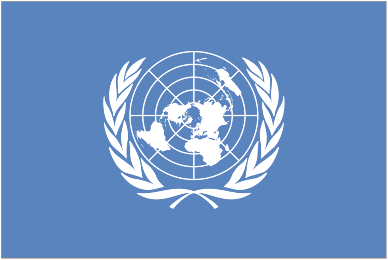
The UN Security Council today imposed a travel ban against five military officers who seized power from the civilian government in Guinea-Bissau and urged Member States to ensure that the sanctioned individuals do not enter or transit through their territories.
In the same resolution, the Council demanded that the Guinea-Bissau military leadership take immediate steps to restore and respect constitutional order, including holding democratic elections, ensuring that all soldiers return to barracks, and requiring that members of the “military command” relinquish their positions of authority.
Soldiers in Guinea-Bissau – a West African country with a history of coups, misrule and political instability since it gained independence from Portugal in 1974 – seized power on 12 April. Calls by the international community for the return to civilian rule and the restoration of constitutional order have so far gone unheeded.
The travel ban affects coup leaders General Antonio Injai, Major-General Mamadu Ture, General Estevao Na Mena, Brigadier-General Ibraima Camara, and Lieutenant-Colonel Daba Naualna.
The Council members indicated that they may review the measures contained in the resolution, including strengthening it through additional measures, such as an embargo on arms and financial measures.
They stressed the need for all national stakeholders and Guinea-Bissau’s international and bilateral partners to remain committed to the restoration of constitutional order, and encouraged the Economic Community of West African States (ECOWAS) to continue its mediation efforts, in coordination with the United Nations, the African Union and the Community of Portuguese Speaking Countries (known by the Portuguese acronym CPLP).
The Council also expressed concern over reports of looting, including of State assets, human rights violations, including arbitrary detentions, ill treatment of detainees, repression of peaceful demonstrations and restrictions on the freedom of movement, stressing that those responsible for such abuses must be held accountable.
In addition, the Council requested Secretary-General Ban Ki-moon to remain actively engaged in the mediation process, and to harmonize the respective positions of international bilateral and multilateral partners.
On Thursday, Mr. Ban’s spokesperson announced that the Secretary-General’s Special Representative for West Africa, Said Djinnit, will participate in the ECOWAS Mediation and Security Council on Mali and Guinea-Bissau – taking place in Abidjan, Côte d’Ivoire, on 19 May – as part of the United Nations’ ongoing efforts to ensure the full restoration of constitutional rule in the two countries.